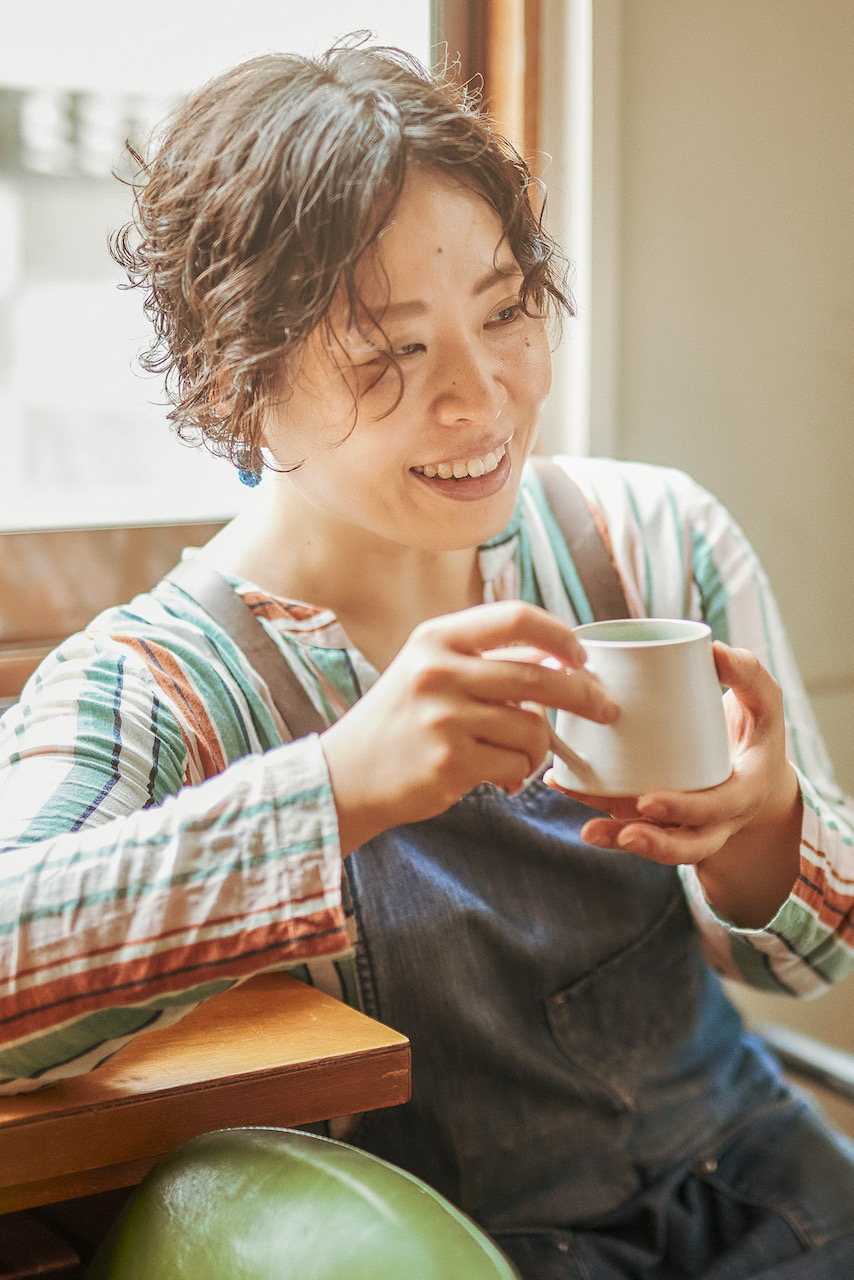
We do what small business can — Making people happy within a 200-meter of a coffee shop ——
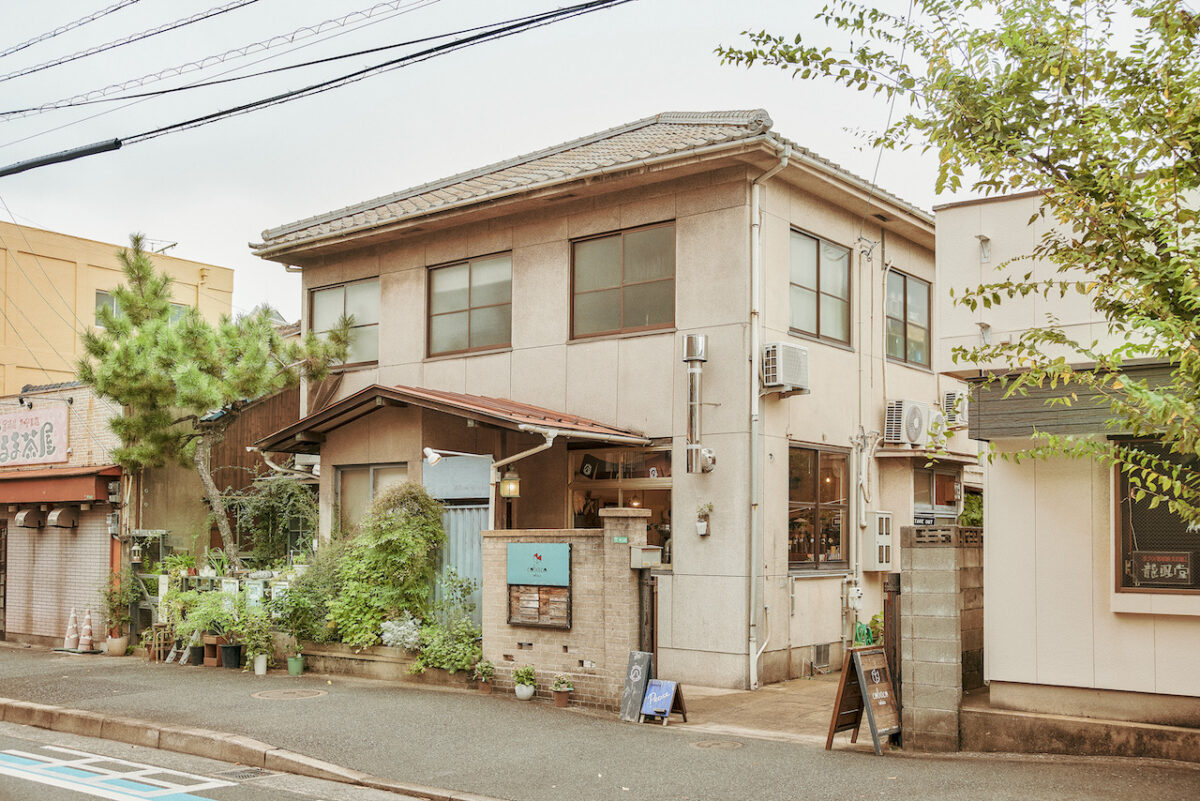
A renovated former gynecology clinic building cobaco tobata consists of five shops standing along a prefectural road in Tobata district of Kitakyushu. On the first floor is a coffee shop Maruhachi Coffee Roaster opened in 2017 by Miyako Yachigo.
She says that the world of coffee, which she entered at the age of 35 after working at a call center for a major company, gave her a chance to face herself and taught her the harshness of business, the depth of the industry, the warmth of people and the breadth of the world she could connect with.
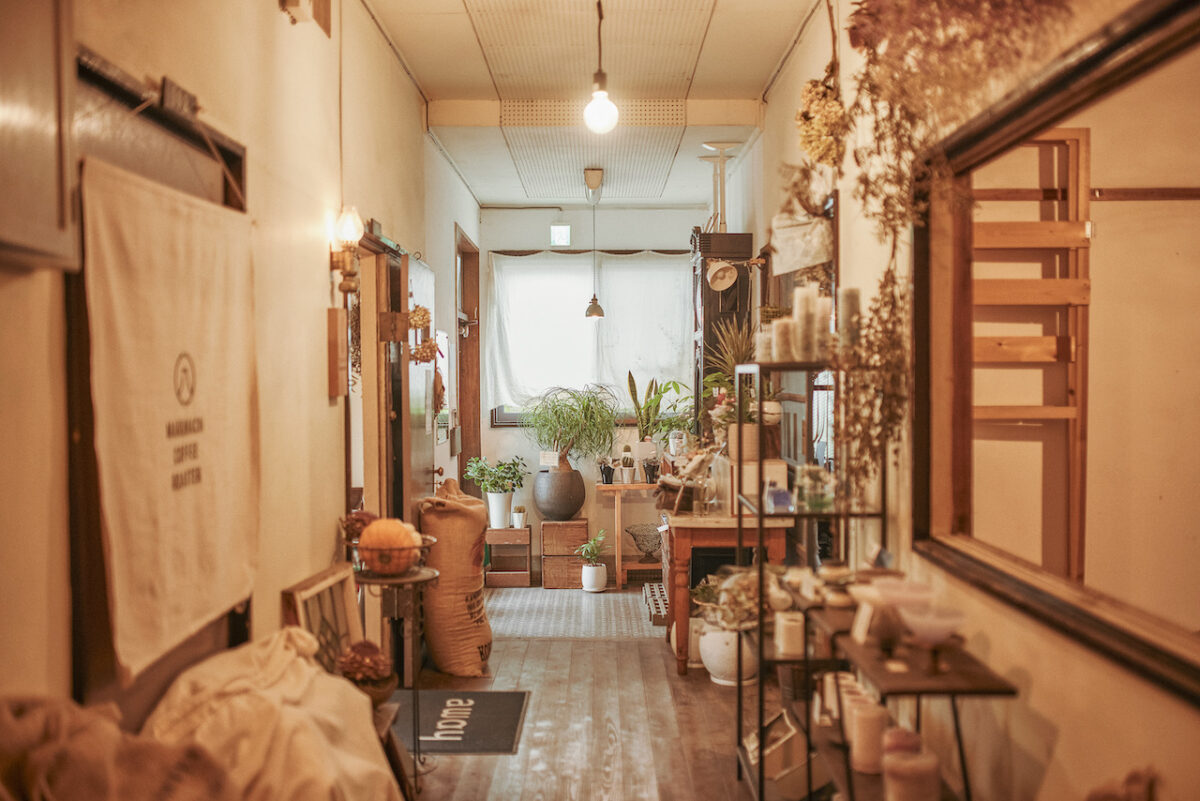
An encounter with a book
Opening the retro looking door made of wood and frosted glass, you find Maruhachi Coffee Roaster just to the right of a corridor with a Showa-era atmosphere in a corner of gently bathed sunlight. In this space, which would soon be five years old, people from all walks of life visit for a moment of peace of mind, including those who come after a night shift for a cup of hot milk, those who come to consult about their work problems, parents with their children who have been coming here since they were in pregnancy and people also in coffee business who just drop by.
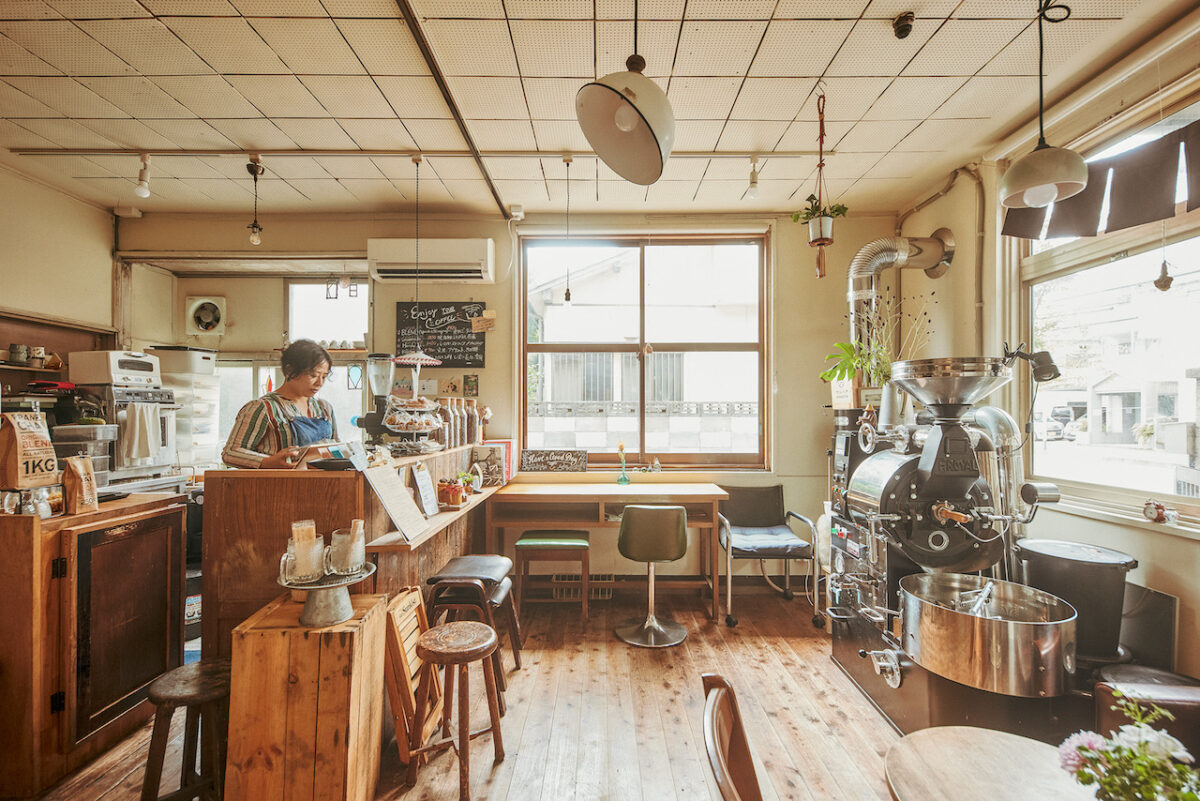
Engawa (a Japanese-style veranda in the traditional architecture) — that is the concept of Maruhachi Coffee Roaster. A place where the boundary between the everyday and the extraordinary becomes blurred, a boundary that connects the outside and the inside and a place where one can have pleasant encounters. The owner, Miyako’s goal to create such a shop is rooted in her childhood memories. She was born and raised in Onojo about an hour’s drive from Kitakyushu, Fukuoka Prefecture, where the shop is currently located.
“I lived in a house near a typical Showa-era shopping street, where the neighbors’ grandfathers and grandmothers would come to say welcome home and run errands. It was a nosy but warm place and even after I started working and left my hometown, it was still my favorite scenery rooted inside me.”
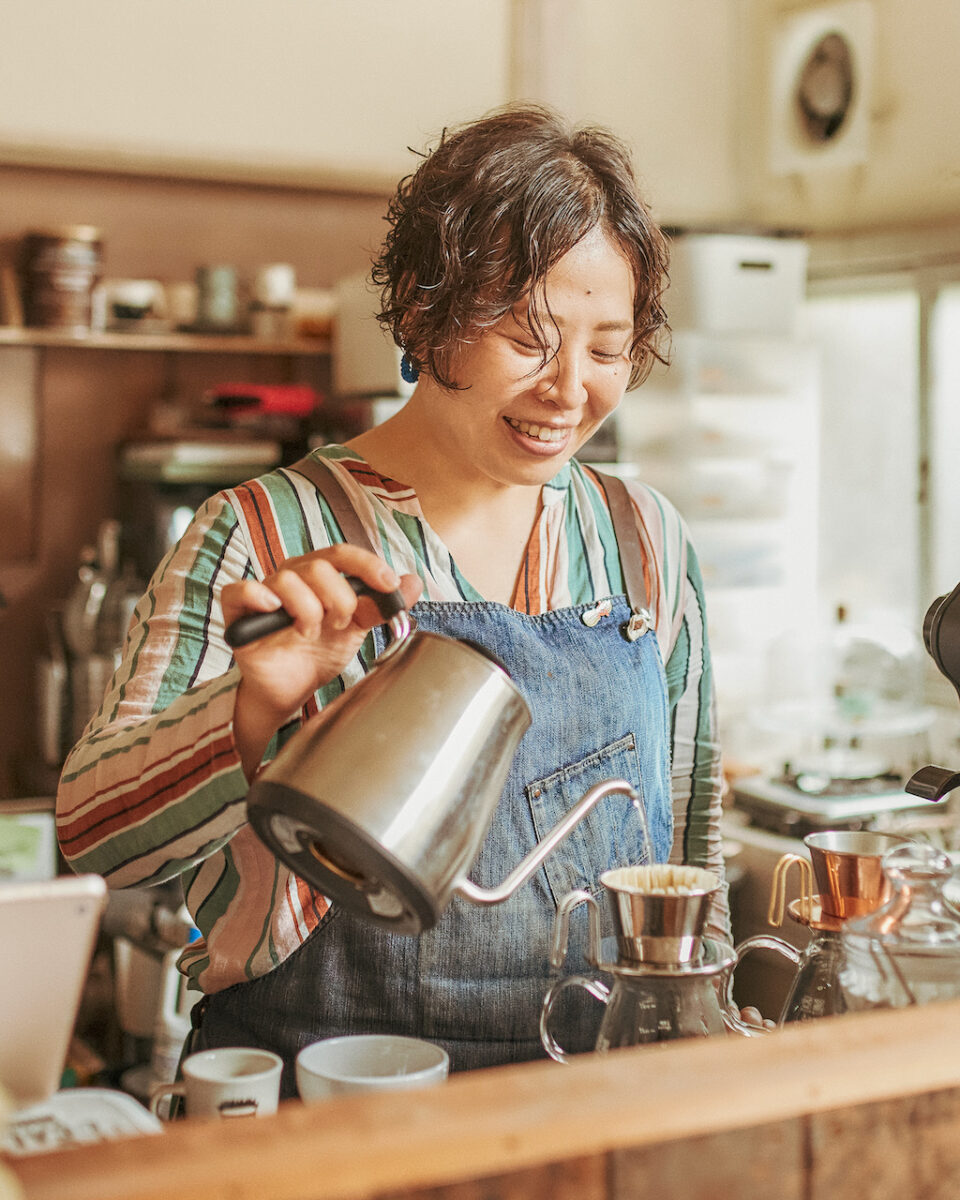
She began to think that one day she would like to give shape to this scenery with her own hands. It all started with a book she picked up at a bookstore while she was working at a company in Tokyo.
“It’s a book written by Yohei Shimada, an architect, called The Life You Want is What you build, Our Renovation Town Planning. The book is about how Yohei Shimada, who is from Kitakyushu, is revitalizing a deserted shopping district in his hometown.”
Kitakyushu is also the place where Miyako used to live. In the cafe, she was so engrossed in turning the pages that she found herself finishing the book in one sitting.
“Shimada san was very shocked to see his hometown would lose its former liveliness as the once flourishing steel industry declined. Nevertheless, I was surprised to read that the landscape of the city would change if we make use of the old and original things and start something new.
I realized that I could create the scenery I wanted to see and the town I wanted to live in with my own hands. That was the moment I realized that if I were to take on my next challenge, I would like to work on the side of creating such a view of the city. ”

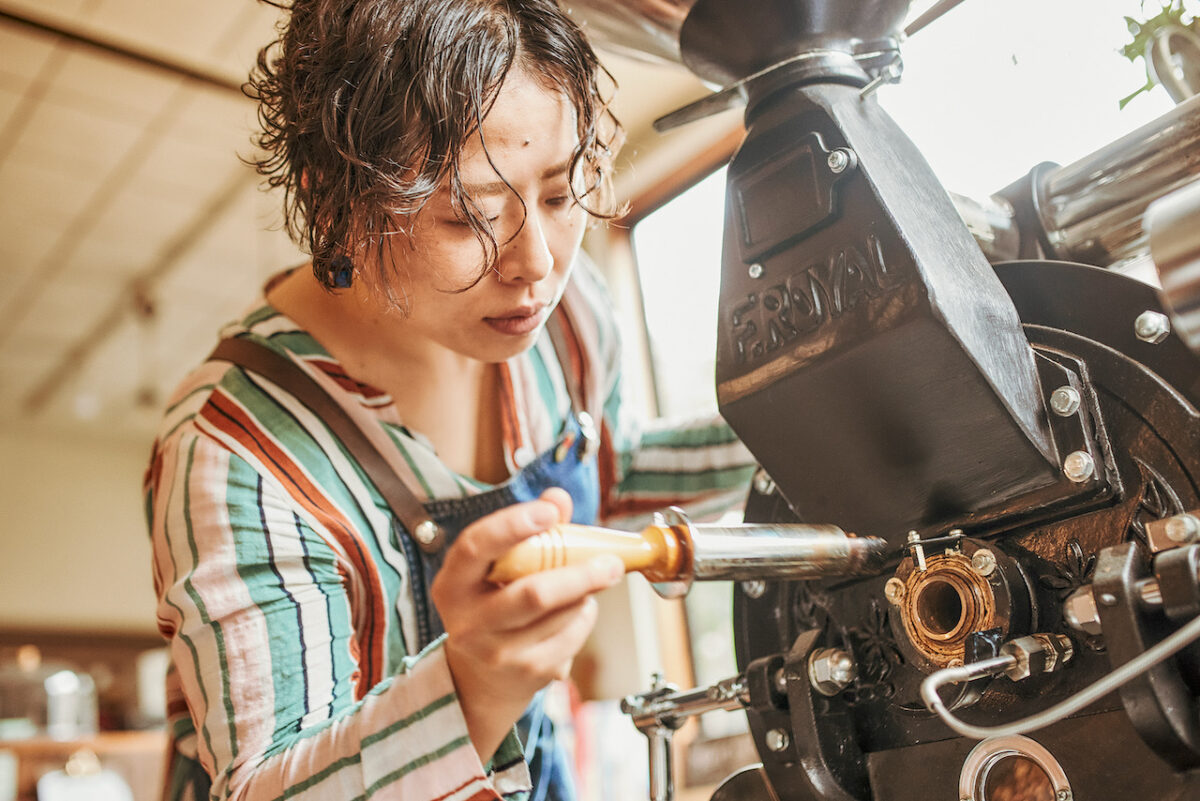
Coffee that sustained my exhausted mind
It was the time when she was wondering whether to quit the company that she was working for. No matter how much time she devoted to her work, she felt that the company was not changing and that made her uncomfortable every day.
“I originally worked at a call center for about 8 years. I think that communicating with customers and listening to their real voices suited me well. When I was transferred and left the department to work in the department behind the scenes, I was still hopeful that I would be able to contribute in my own way.”
When she was transferred, she moved from her familiar home in Kitakyushu to Tokyo. Still, her positive attitude remained unchanged. She made up her mind to do her best. However, what awaited Miyako was the renewal of the management system and a scandal that caused a stir at the time.
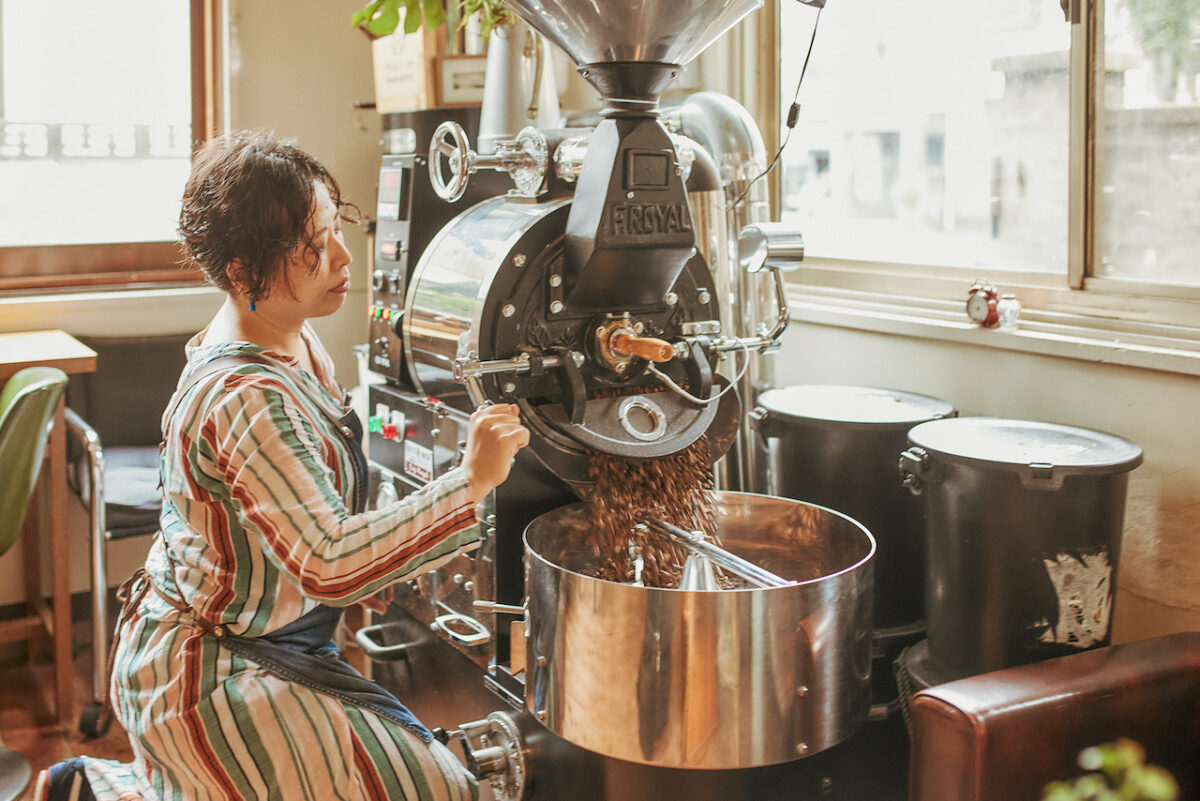
“The reorganization started, and I saw the people, skills and organization falling apart in a matter of a month or so. When I saw people leaving and the site not being able to run, I realized that 8 years of accumulation could disappear in an instant. I felt empty and sad, thinking that my time had just been consumed.
On top of that, a scandal broke out and I had to deal with it all day long for about 6 months. Then I suddenly wondered if I was going to be doing this job for the rest of my life.”

Every day Miyako was exhausted both mentally and physically. In the midst of this life, it was coffee that supported Miyako’s heart.
“Especially after I moved to Tokyo, I would go to various shops every time I had a day off to enjoy the atmosphere of the shop and talk with the owners. This helped me to clear my mind and get away from the real world for a moment. The combination of these pleasant sensations made me think that I wanted to do it too.”
It was during this time that she happened to find a course on cafe studies at Freedom University. It was 2015, two years before she opened Maruhachi Coffee Roaster.

In three months, she learned about the history and techniques of coffee, as well as how to create a space for a shop, from cafe managers and company representatives. At the same time, she helped out at events such as the Tokyo Coffee Festival and visited cafes every day, becoming completely immersed in the world of coffee. She absorbed everything she could from the shop’s menu to the way the flower vases were placed. It’s a tough world but she was sure she could hold on for this. I want to try this. That’s what she thought.
“Coffee can be made anywhere as long as you have water, electricity, and beans. I was pleasantly surprised by the feeling of the air changing at once by a cup of coffee. At events, children and strangers would naturally come up to me and say ‘It’s delicious’. I was working as an office worker at the time, so it was a new experience for me. There is a lot of hard work that is invisible to our eyes, but it was a moment when I felt that it was worth it.”
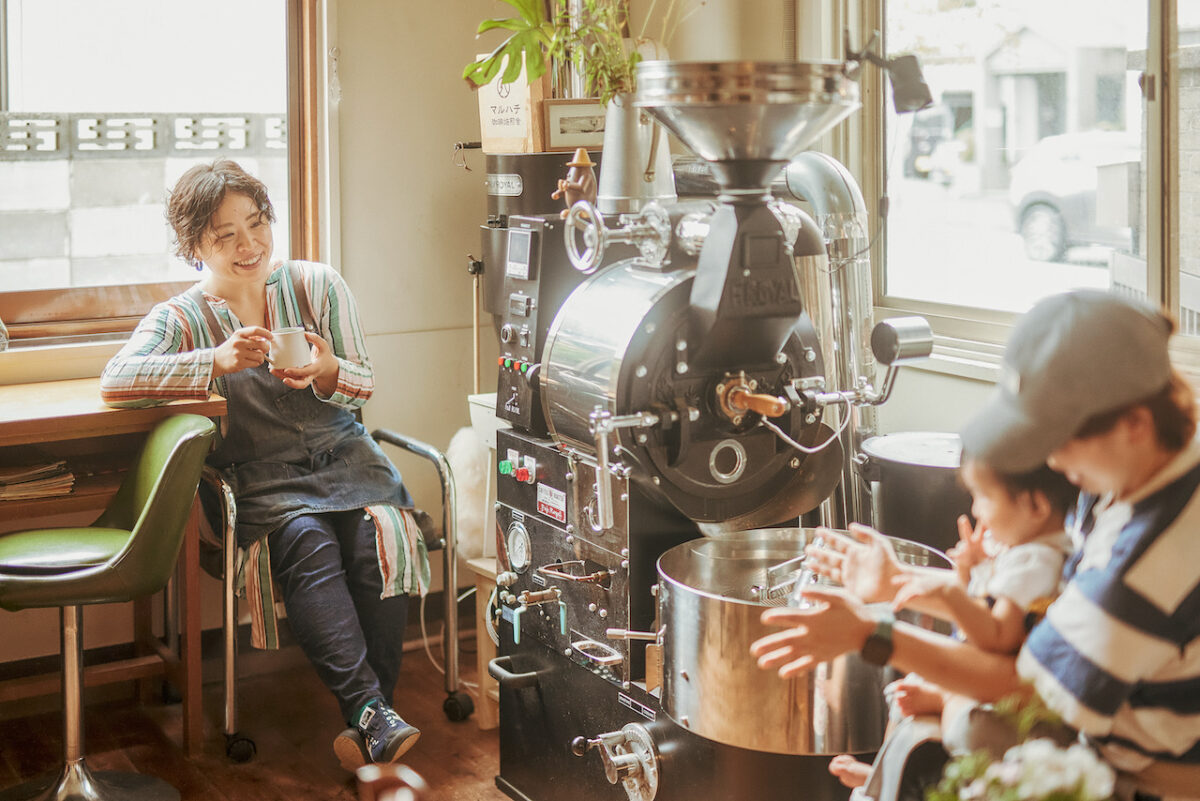
The following year in November 2016, Miyakotook an even bigger step forward by attending the Creative Founding School, also at Freedom University.
“In the Creative Founding School, we were given the opportunity to dig deep and present what we were interested in and what we could realistically do now. In the end, the answer I came up with was to create a place to serve coffee to people with the keyword ‘Engawa’. After producing the output, I was able to make up my mind and decided to go in that way.”

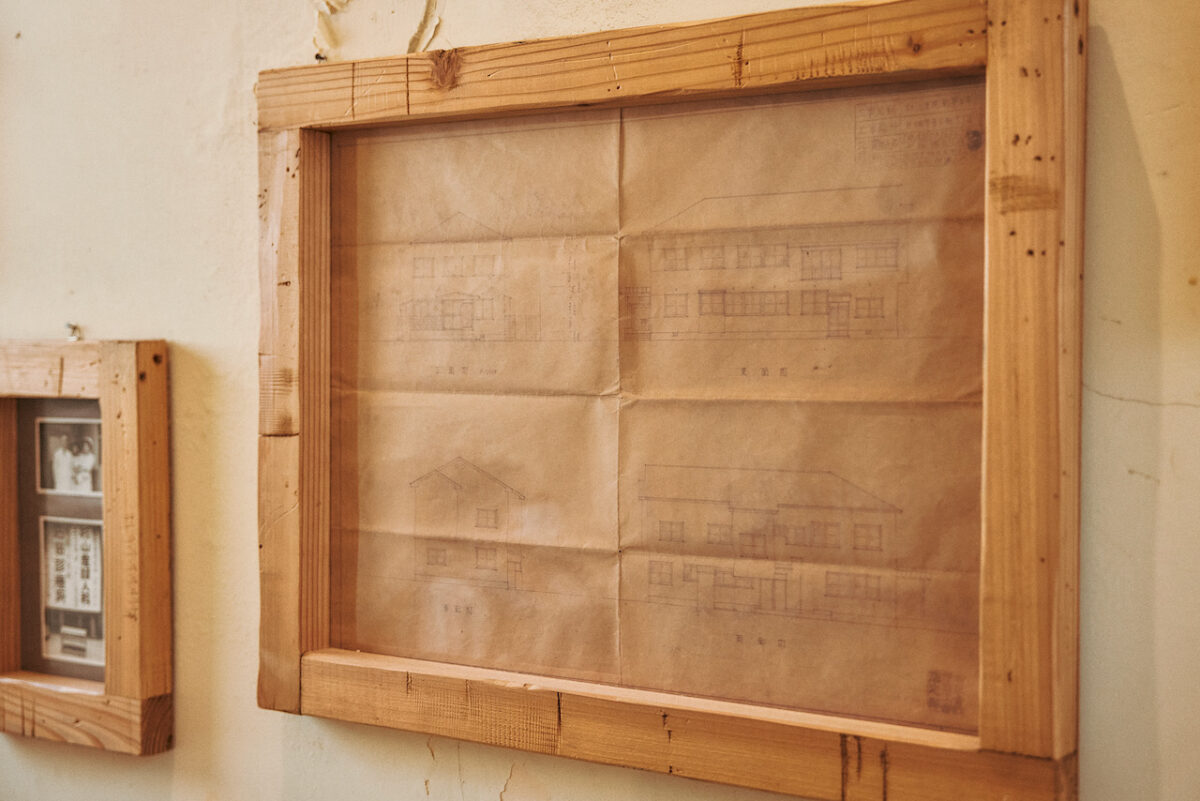
After many days of trial and error
Miyako was not yet ready to start the business but she wrote the proposal and calculated the cost. There were times when she wondered if it would be profitable. But her motivation pushed her forward. In 2017, after learning about roasting, she had a concrete idea of opening her own coffee shop. Six months later, Miyako returned to Kitakyushu and found the property of her dreams.
“I was introduced to the current property and it fitted the sketch I had drawn in my proposal so well. The first thing that came to mind was that I couldn’t miss it, so I signed a tentative contract even though I hadn’t been trained or prepared yet.”
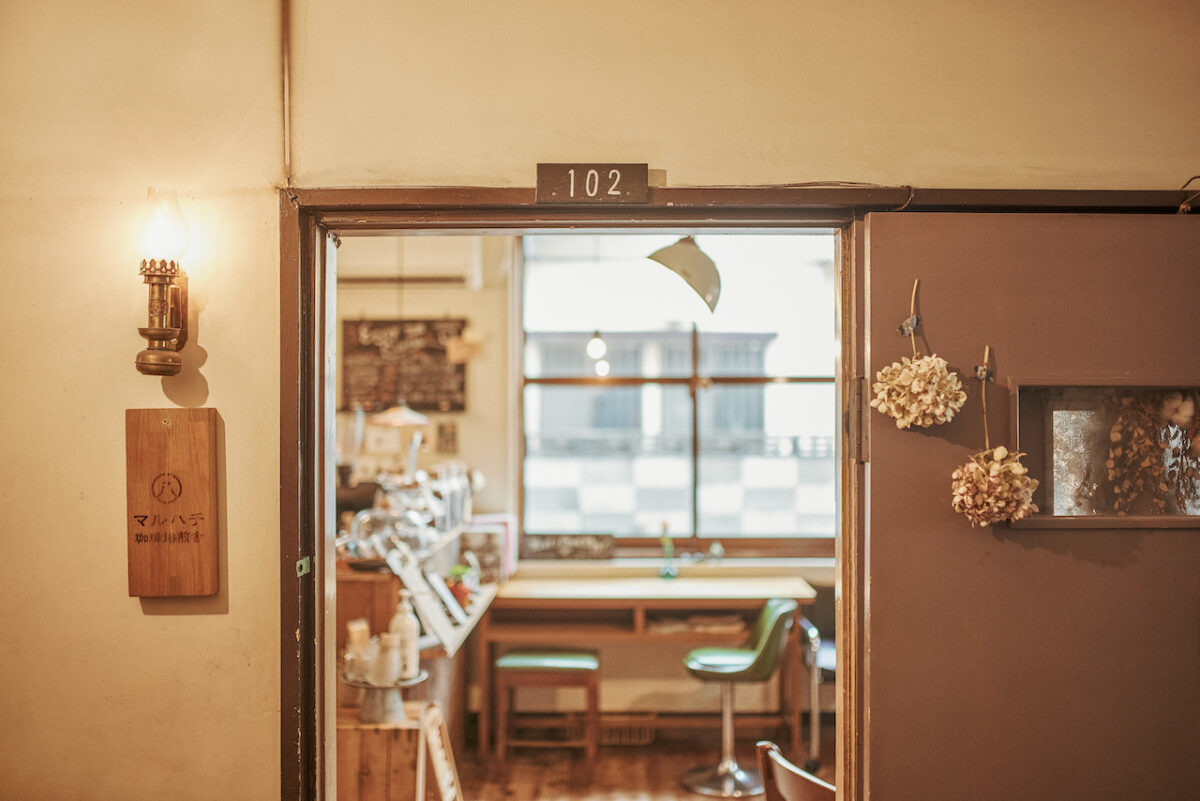
It was as if the building had a personality of its own, Miyako says. The candy color of the floors and stairs stained with age, the traces of having been used with care for a long time. Such warmth was essential to the landscape of the town she was aiming for.
From there, she started training and preparing for the shop at the same time and opened the shop in less than 6 months. In her first and second years, she tried to take on new challenges and prioritized study and self-investment over profitability.
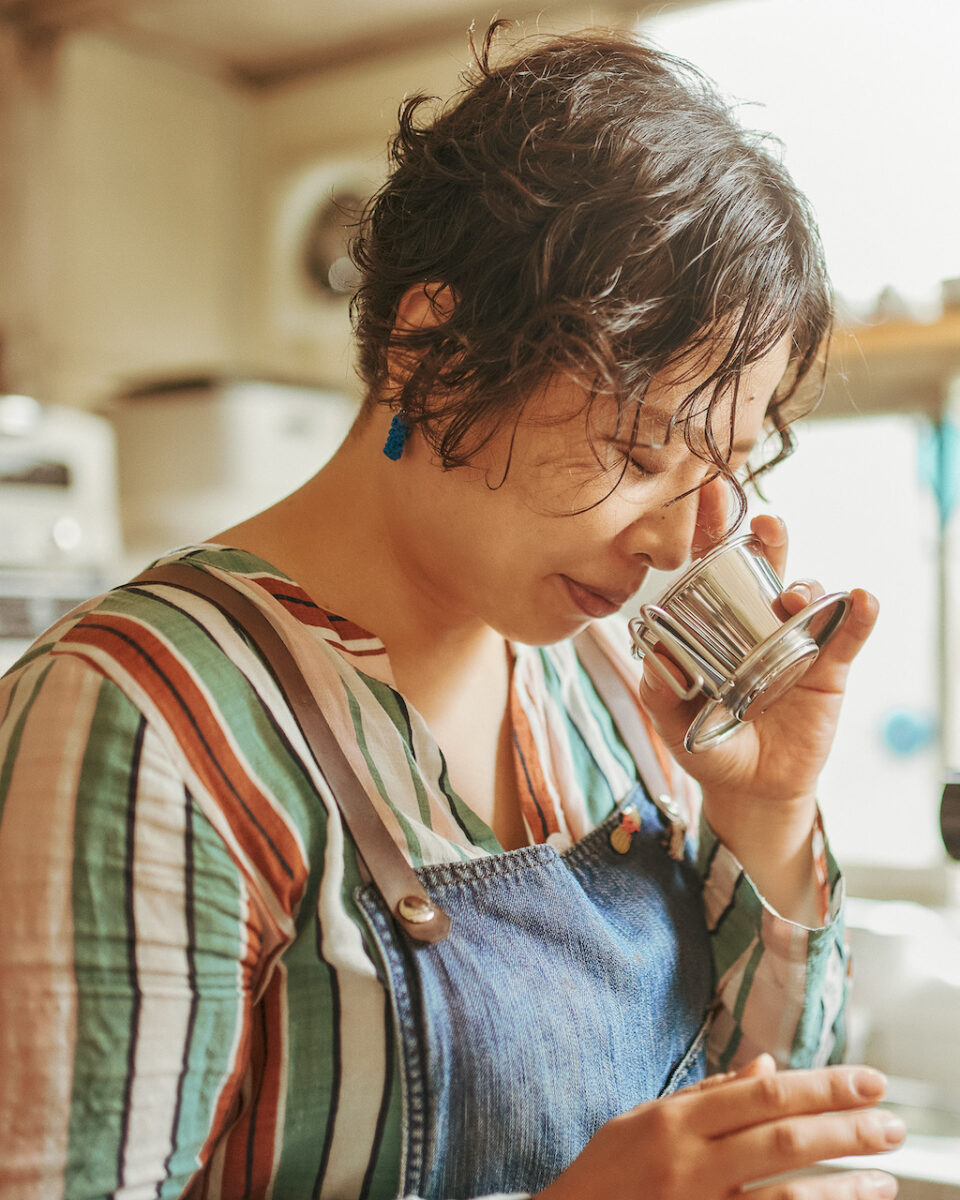
“I entered the industry later than others at the age of 35 and at first I felt rushed and overwhelmed. Compared to others, I felt left behind. It took me many months to use up a bag of green coffee, and I was sometimes worried that what I was doing was just self-satisfaction.”
Customer service was a trial-and-error process and Miyako was always tense at first. However, when buying green coffee she had more and more opportunities to be in the same place as the roasters she admired, it made her desperate to show that she was serious.
“Owning a place means accepting all comers but I’m not sure if I was ready for that when I first opened the shop. There were times when I thought I was too narrow minded to get upset about something trivial or that I didn’t get along with the customers well. I would say that I wanted to give them peace of mind but I would also expect them to be strict just like I am to myself, and I would subconsciously think that I didn’t want them to misunderstand that I was doing it for fun. I realized that if I didn’t take a big and relaxed stance, I wouldn’t be able to continue running the shop.”
Even so, the amount of roasting she did increased with each passing day and the reactions of people who drank her coffee gradually gave her confidence. Online sales, which she started in 2019 also gave her an opportunity to meet new customers during COVID-19 time. Whenever she got stuck, she got advice from her seniors who were operating a shop in the same building.
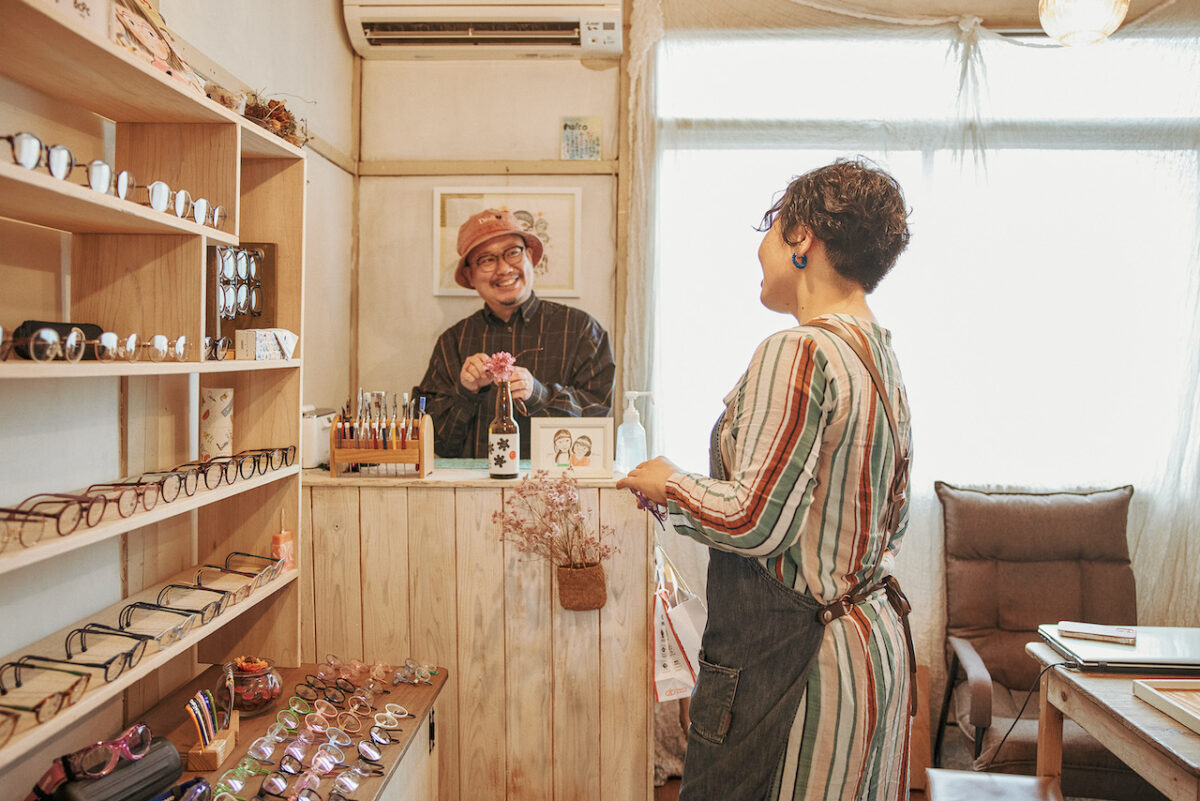
“I’m living under the same roof with the other four shops like a pseudo-family, so I can naturally see how they behave and how they serve customers. Thanks to the admonitions and mental attitude of those who have been in their professions for a long time, I was able to gradually change my mind and perspective.”
From the perspective of those around her, the relationship may seem nosy. For those who don’t fit in, it can be a harsh environment. However, Miyako, who grew up in an environment with close relationships with the local people, was able to accept it naturally.
“Of course there are difficulties related to keeping a business running, as well as getting along with other shop owners from different industries in harmony. Even still, there are things that can be gained only by continuing and experiencing. When I was working at the company, I thought things were only black and white but now I can see the gray part and think about where to settle things. In that sense, I think my perspective has expanded. I like the way I think now more than I was working at the company.”

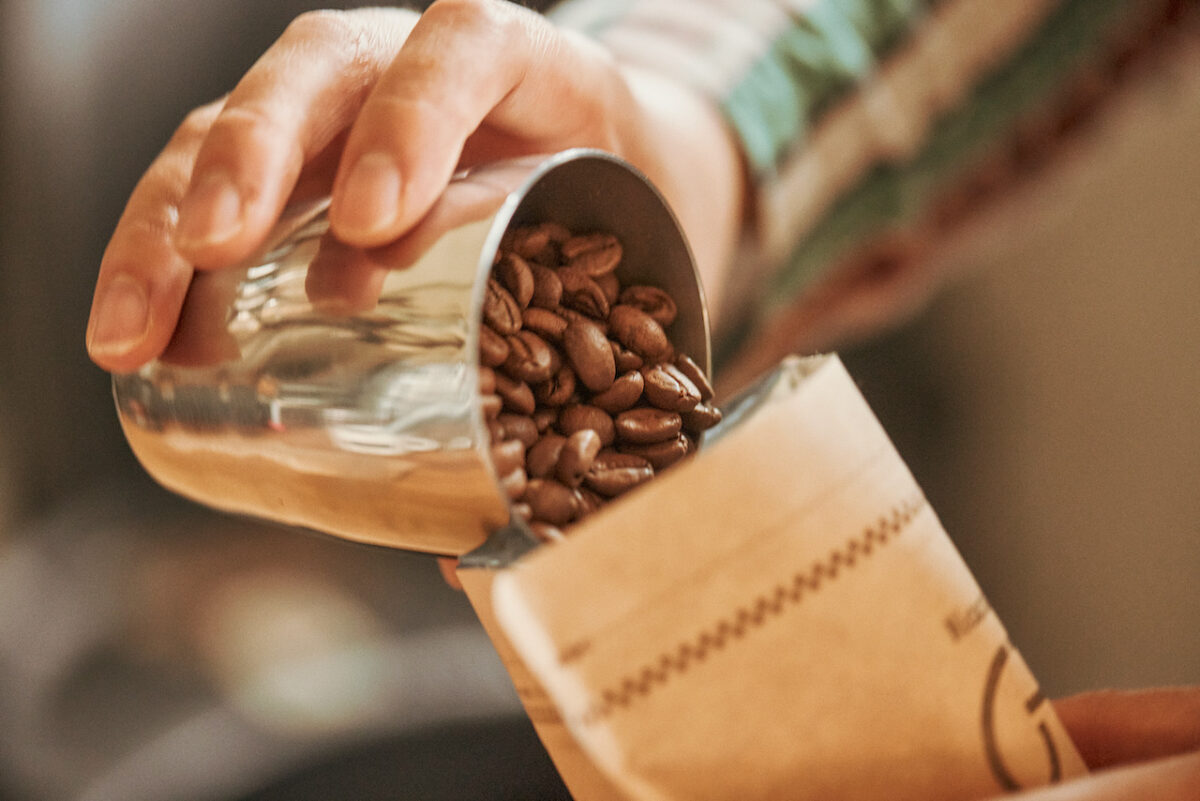
Shop that blends in with landscape of city
Miyako’s vision for the future is to make the people within a 200-meter radius around happy. To achieve this goal, she wants to create a shop that is comfortable and blends in with the scenery of the city.
“In the beginning, I sometimes was troubled by the thought that what I was doing was so small. But then I realized that there are certain scenes where my shop was wanted because of the small business size and I felt that this was my role. After I started working, I realized that it was tougher than I had imagined to keep the shop going. However, being a one-person shop, I can easily respond to the needs of the customers and make small adjustments. I am now thinking of continuing as long as I can, while adapting to my own changing lifestyle.”
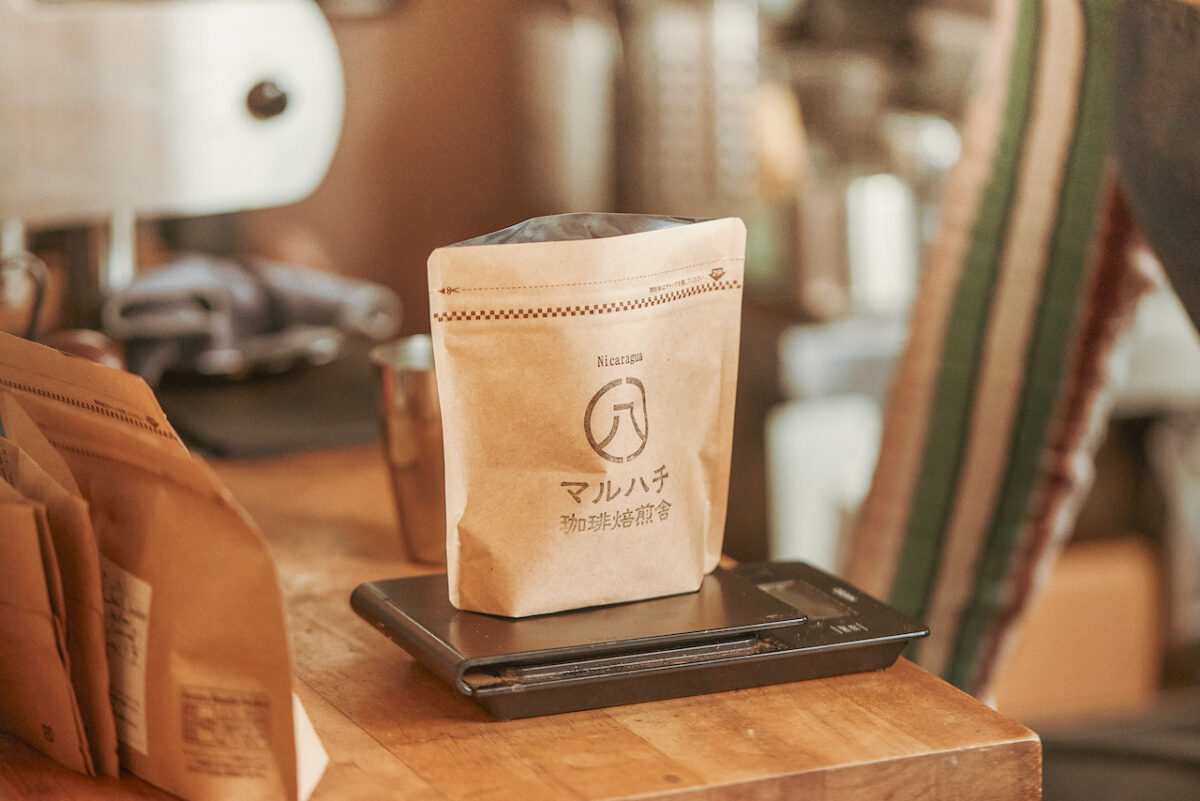
Slowly but steadily, she does what she can do on her own. And she aims to create a scenery like the one depicted in the book she read that day 6 years ago. That hasn’t changed a bit.
“Whether I continue or someone else takes over, I want to take good care of the shop so that it can continue to be a relaxing and useful place for the people around me. I’m taking on the challenge of creating a shop that can survive for a long time maintaining the current atmosphere with the help of the people around.”
Originally written in Japanese by Kana Ishiyama
Edited by Tatsuya Nakamichi
Photo by Kenichi Aikawa
MY FAVORITE COFFEE
It is a cup of coffee that someone makes for me during the holidays. It doesn't matter if it's a professional one, my mother’s one, my grandmother’s one, a real one, a coffee maker or even an instant one. When I make my own coffee, I work deductively to make it taste the way I want it to taste but that is more for the purpose of injecting energy, which is more of an active movement rather than relaxation. Drinking a cup of coffee brewed by someone else without thinking about it is a calming moment for me.

Maruhachi Coffee Roaster
- [Open]
- 9:00-19:00(L.O 18:45)